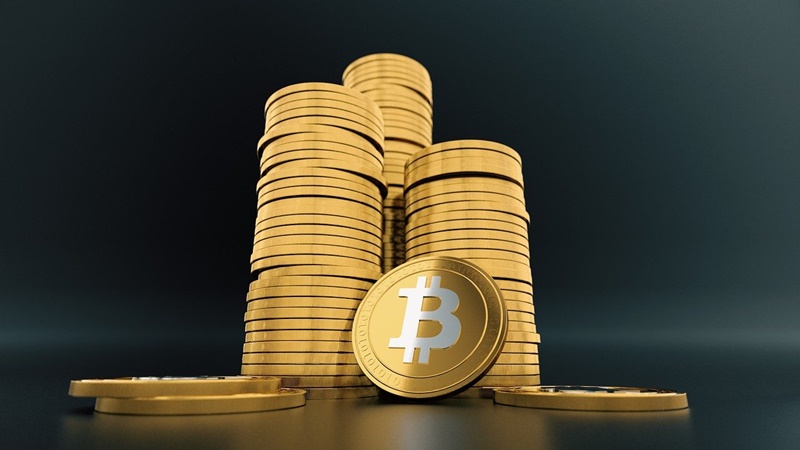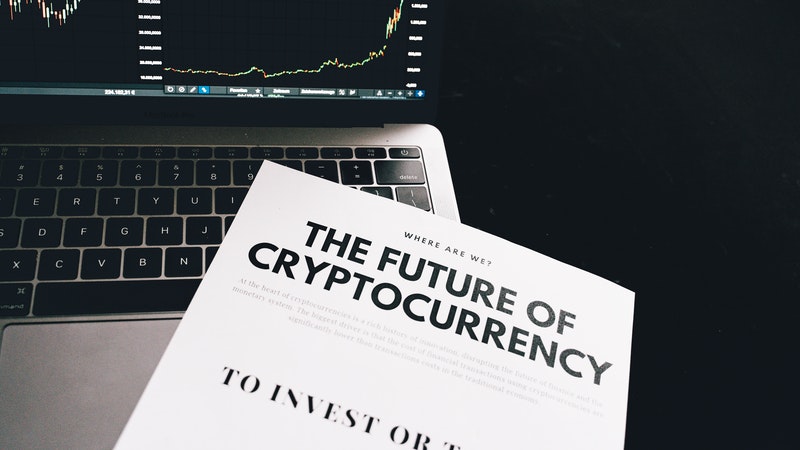Do not be surprised, if the e-wallet on your mobile looks like a multi-monetary account by the end of the next decade. You can, however, be a borrower of central banks rather than commercial banks. In truth, a number of them. As long as you don’t start associating the future of money with Bitcoin, the notion that most of today’s cash use will move to digital tokens is neither faddish nor outlandish.
Equally conveniently, this new way of earning or investing money will eventually replace traditional currency benefits in everyday life.
What is Bitcoin?
Bitcoin is a modern digital currency developed in 2009 by an anonymous person identified only by Satoshi Nakamoto’s pseudonym. There are no middlemen in transactions – no banks, that is! You can use your Bitcoin for booking Expedia hotels, shopping for furniture, and many more. But a great deal of the hype is to make it valuable. In 2017, the price of Bitcoin went up to thousands. It grew above $60,000 in March 2021.
Bitcoin – Future of Digital Currency
Bitcoin is a kind of electronic currency that is generated and stored on a device. Bitcoin is not paper money, such as Rupees, Dollars, Euros, or Yen owned by central or currency banks. It is the first Cryptocurrency created by individuals and companies worldwide using sophisticated computer software that solves mathematical problems.
Unique properties of Bitcoin
- Bitcoin is easy to set up. Through Bitcoin, you can create an account in mins with no fees, no credit checks, and no ambiguous requests to respond to.
- Bitcoin works in a decentralized manner where transactions recorded so that you can check them anytime you want.
- You can go anonymous with Bitcoin. Banks now know everything about their consumers for all reasons, including financial records, emails, mobile numbers, management of capital, and so on. For Bitcoin, it’s entirely different since the wallet doesn’t attach to specific details.
- Investing in Bitcoin, you can get access to quick instalments.
- Bitcoin is Non-repudiable. When you give your Bitcoin to another, you have no way of getting them back until the recipient agrees to return them to you. This ensures that an instalment collected; meaning that whoever you’re trading with can’t deceive you by claiming that they never received the money.
Value of Bitcoin (BTC)
The rule of supply and demand defines the value of Bitcoin, and since the market fluctuates, the cryptocurrency’s price is highly volatile.
Apart from Bitcoin mining, which necessitates technological knowledge and the procurement of high-performance machines, most people buy Bitcoin as a means of currency investment, hoping that the US dollar worth of one Bitcoin would rise throughout the future. However, this isn’t easy to predict.
Pros and Cons of Buying Bitcoin
Pros of buying Bitcoin
- Private, safe purchases: When you buy Bitcoin, you can send them to anybody, anywhere at any moment, cutting down on the time and possible cost of any purchase. Personal information such as a name or credit card number is not used in transactions, which reduces the possibility of payment information being used for illegal sales or identity theft.
- The possibility of significant growth: Any Bitcoin holders who purchase and keep the currency believe that greater trust and broader adoption will develop when it matures. Hence, Bitcoin’s value will rise.
- Ability to reduce the conventional banking procedures: Having a risk of the financial crash and the Great Recession, some investors are keen to adopt a decentralized currency that is largely independent of traditional banks, governments, and other third parties.
Also Read: 8 Best Cryptocurrency News Apps You Should Install
Cons of buying Bitcoin
- Price volatility: Recent gains are good news for sure. But it carries lots of price variations. Today its rate is higher for investment. But, tomorrow it can be different, which might get you in trouble for bearing losses.
- Fear of hacking: Although supporters claim that Bitcoin’s blockchain technology is more robust than conventional electronic money transactions, hackers have found Bitcoin hot wallets to be a lucrative goal. Several high-profile thefts also occurred, including the theft of more than $40 million of Bitcoin from several high-net-worth accounts.
- Unregulated: Bitcoin itself is unregulated, and if anything goes wrong, it leaves you legally vulnerable.
Should you buy Bitcoin?
Some people prefer Bitcoin because the government or banks do not regulate it. People may also invest in Bitcoin in a reasonably anonymous way. Even though all transfers registered, no one will know which ‘account number’ belonged to you unless you told them. Elon Musk said he was a significant fan of Bitcoin in an online conversation with social media users in January 2021. He also changed his Twitter bio to include the hashtags “#bitcoin.”
Bitcoin is a precarious and unpredictable investment. Stock trading may have a similar thrill. Choosing stocks from well-established firms is usually less risky than investing in Bitcoin.
Bitcoin is similar to a single stock in that you can invest 1 to 10% of your income in it while becoming aware of the risks.
Note: Central banks of many countries have warned their citizens that bitcoin is not legal tender and not guaranteed by the government. However, bitcoin and cryptocurrency in few countries like the U.S are legal. So before investing in it, you should check the legality of buying bitcoin in your country.















I still can’t trust it, because it is not tangible, however the stocks are not tangible either, but they something is backing them. what is backing Bitcoin?
The next guy who buys Bitcoin.
Can bitcoin be used for average percuses
It sound like bitcoin is a trading business. Bitcoin sound very risky to me.